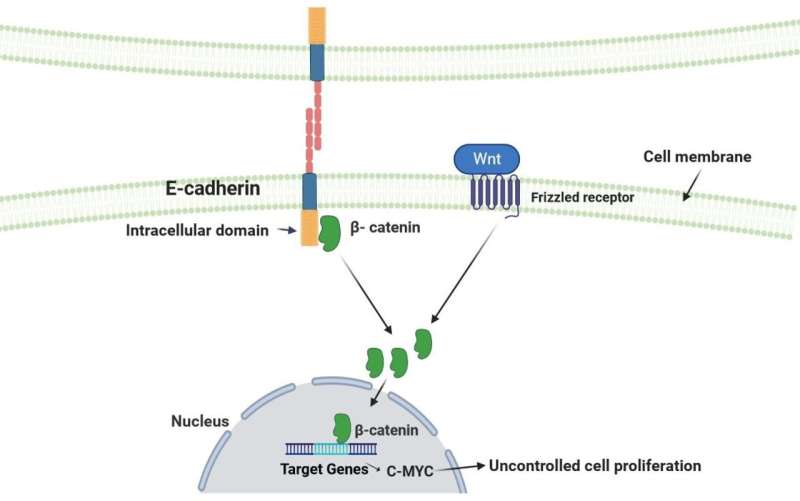This article has been reviewed according to Science X's editorial process and policies. Editors have highlighted the following attributes while ensuring the content's credibility:
fact-checked
proofread
Unraveling the mystery of hereditary diffuse gastric cancer

Gastric cancer, a significant global health burden, claims more than 7% of cancer-related deaths annually. Although only 1%–3% of cases have a genetic basis, understanding these genetic drivers is crucial for developing preventative strategies.
Gastric cancer, a formidable foe in the global health arena, casts a long shadow over millions of lives each year. While its tendrils reach far and wide, a distinct subset—hereditary diffuse gastric cancer (HDGC)—emerges as a particularly aggressive and enigmatic adversary. This group of cancers, accounting for roughly 10% of all gastric cancer cases, exhibits a chilling pattern of familial clustering, hinting at a deeper genetic melody playing beneath the surface.
Unraveling the secrets of HDGC has led scientists to a crucial player: the CDH1 gene. This gene, the blueprint for a protein called E-cadherin, acts as the glue that binds cells together, forming the tight-knit communities that make up healthy tissues. This gene is explored in a new article published in the journal eGastroenterology by researchers from Johns Hopkins University and the University of Chicago.
Mutations in CDH1 disrupt this delicate dance, causing cells to lose their grip and embark on a journey of uncontrolled growth—the hallmark of cancer. More than 100 unique mutations in CDH1 have been identified, each a discordant note in the symphony of a healthy genome. In roughly 40% of families burdened by HDGC, these mutations act as the conductor, orchestrating the tragic progression of the disease.
However, the story of HDGC is not solely etched in the pages of the CDH1 gene. Other players, like CTNNA1 and MAP3K6, join the chorus, adding layers of complexity to the genetic landscape of this cancer. Like a misplaced instrument, each gene mutation contributes to the disharmony that defines HDGC.
Understanding this intricate interplay of genetic factors remains a key challenge, but it holds immense promise for unlocking new avenues of prevention and treatment.
Despite the lingering mysteries, a beacon of hope shines through—prophylactic total gastrectomy (PTG). This surgical procedure, though drastic, offers a life-saving option for individuals with a ticking time bomb of CDH1 mutations and a family history of HDGC. By removing the stomach, the potential breeding ground for cancer, PTG effectively silences the discordant melody and prevents the tragic symphony from playing out. While PTG comes with its own set of challenges, it stands as the only definitive preventive measure currently available for these high-risk individuals.
The battle against HDGC is far from over. Unraveling the complexities of its genetic drivers, deciphering the supporting roles of other genes, and refining our understanding of the interplay between genetics and environment are crucial steps in the fight. With continued research and unwavering dedication, we can hope to one day rewrite the script of HDGC, replacing its tragic verses with a triumphant chorus of prevention and cure.
More information: Farzad Mokhtari-Esbuie et al, Pioneering use of genetic analysis for CDH1 to identify candidates for prophylactic total gastrectomy to prevent hereditary diffuse gastric cancer, eGastroenterology (2023). DOI: 10.1136/egastro-2023-100017



















